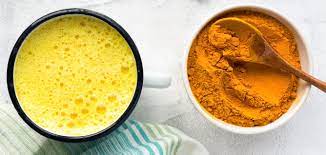If you’ve ever experienced soreness or muscle pain after a workout, then you know how debilitating it can be. But did you know that curcumin, the active ingredient found in turmeric, has been found to provide relief from inflammation and muscle soreness? In this blog post, we’ll explore the science behind curcumin and its potential benefits for muscle recovery and soreness. We’ll also discuss the best ways to incorporate turmeric into your diet so that you can reap its anti-inflammatory benefits.
What is Curcumin?
Curcumin is an active ingredient found in turmeric, the yellow-colored spice that’s a staple in many dishes from South Asian cuisine. It’s been used in Ayurvedic medicine for thousands of years, and more recently, research has been exploring its potential health benefits.
Curcumin is known as a powerful anti-inflammatory agent, which means it may help reduce swelling and pain associated with muscle soreness. It’s also been linked to improved blood flow, helping your muscles get the oxygen and nutrients they need to stay healthy and strong.
In addition to its anti-inflammatory properties, curcumin may also help boost the body’s natural antioxidant capacity, reducing oxidative stress and the risk of chronic diseases like heart disease and diabetes. Research has also shown that curcumin can improve cognitive function, making it a great natural supplement for athletes who want to stay sharp during their workouts.
So, what does this all mean for muscle recovery and soreness? While more research is needed to confirm the full effects of curcumin on muscle recovery and soreness, current evidence suggests that it may be beneficial for those looking to reduce pain and inflammation after exercise. If you’re considering adding curcumin to your post-workout routine, make sure to talk to your doctor first.
What are the benefits of curcumin?
The antioxidant and anti-inflammatory properties of curcumin, the active ingredient found in turmeric, make it an increasingly popular supplement for athletes looking to improve their muscle recovery and reduce soreness. Studies have shown that curcumin can help alleviate the symptoms of inflammation and muscle soreness associated with exercise, such as DOMS (delayed onset muscle soreness).
Curcumin has been found to reduce inflammation by modulating key cellular processes associated with inflammation, including TNF-α (tumor necrosis factor-alpha) and IL-6 (interleukin-6). It is believed that curcumin acts on these pathways to reduce the oxidative damage caused by free radicals, which is known to contribute to soreness and fatigue.
In addition to its anti-inflammatory properties, studies have also shown that curcumin can reduce exercise-induced muscle damage. For example, one study found that taking curcumin after exercise resulted in a decrease in serum creatine kinase levels, which is an indicator of muscle damage. This suggests that curcumin may be effective at reducing the risk of injury during physical activity.
Overall, the research on the benefits of curcumin for muscle recovery and soreness is promising. While more research is needed to fully understand its potential, current studies suggest that it may be an effective supplement for athletes looking to reduce inflammation and muscle damage associated with exercise.
How does curcumin help with muscle recovery and soreness?
The anti-inflammatory and antioxidant properties of curcumin have been studied extensively, and research has suggested that it may be beneficial in helping to reduce inflammation and muscle soreness. Curcumin is a compound found in turmeric, a popular spice used in many dishes across the world. It is thought to work by blocking the activity of certain enzymes that produce inflammatory molecules. In addition to its anti-inflammatory effects, research also suggests that curcumin can help promote recovery from exercise by improving the circulation of blood and oxygen to muscles.
There are a number of studies that have looked at the potential benefits of curcumin for muscle recovery and soreness. One study looked at athletes who had recently completed an endurance race. The athletes were split into two groups: one group was given a supplement containing curcumin, while the other group was given a placebo. After a few weeks, the athletes who took the curcumin supplement reported significantly less muscle pain than those who took the placebo.
Other studies have suggested that curcumin may be able to help speed up muscle recovery and reduce inflammation after exercise. One study looked at cyclists who were given either a placebo or a supplement containing curcumin before and after a cycling race. Those who took the curcumin supplement reported less muscle soreness after the race than those who took the placebo.
Overall, research suggests that taking a supplement containing curcumin may help reduce inflammation and speed up muscle recovery after exercise. While more research is needed to confirm these findings, it is clear that curcumin can play an important role in helping to reduce muscle soreness and aid in post-exercise recovery.
Are there any side effects of curcumin?
When it comes to taking supplements or using natural remedies to reduce inflammation and speed up muscle recovery, curcumin is often one of the first ingredients that comes to mind. Curcumin is the main active ingredient in turmeric, a spice derived from the root of a plant in the ginger family. Curcumin has long been used in traditional Indian medicine for its anti-inflammatory properties and has gained popularity in recent years as a supplement to help with muscle recovery and soreness. But are there any potential side effects associated with taking curcumin?
The good news is that curcumin is generally considered safe for most people. There have been no major reports of adverse reactions or side effects when taken in recommended doses. However, some people may experience minor digestive issues such as nausea, cramps, and diarrhea when taking high doses of curcumin. If you experience any of these symptoms, it is best to reduce your dose or discontinue use.
People who are on blood thinners should also use caution when taking curcumin. Curcumin can increase the effects of anticoagulants, making them more powerful and possibly leading to an increased risk of bleeding. Additionally, if you have any pre-existing medical conditions, it is important to consult your doctor before taking curcumin.
Overall, curcumin is generally well tolerated and can be an effective way to reduce inflammation and improve muscle recovery. When taken in recommended doses and under the supervision of a physician, it is unlikely that you will experience any significant side effects. That being said, it is still important to stay vigilant and contact your doctor if you experience any discomfort or adverse reactions while taking curcumin.
How do I take curcumin?
Curcumin is the main active ingredient in turmeric and is known for its anti-inflammatory properties. Taking curcumin has been found to be beneficial for muscle recovery, reducing soreness, and improving overall health. But how do you actually take curcumin?
There are a few different ways to take curcumin. You can buy it in supplement form, as a powder or capsule, or as an ingredient in food products. The most common way to take curcumin is in supplement form, either as a capsule or powder.
When taking curcumin supplements, it is important to choose a high-quality product that has been tested for potency and purity. It is also important to look for one that contains piperine, which is an extract from black pepper and helps increase absorption of curcumin. The recommended dosage of curcumin varies depending on the severity of your symptoms, but it’s generally recommended to take 500-1000mg per day.
You can also add turmeric to your diet by adding it to your meals. Turmeric is easy to incorporate into a variety of recipes, from savory dishes like curries and stir fries, to sweet recipes like golden milk lattes and smoothies.
Whichever method you choose, adding curcumin to your daily routine can help reduce inflammation and improve muscle recovery and soreness. It’s important to talk to your doctor about the best dosage for you and to make sure there are no adverse reactions with any medications or supplements you’re taking.



